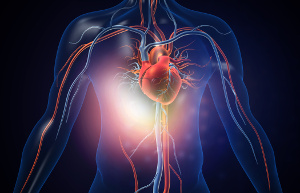Which supplements prevent cardiovascular disease?
 Cardiovascular disease is still the leading cause of death, and both diet and lifestyle are of huge importance. According to a new meta-analysis, fish oil, folic acid, and Q10 are some of nutrients with the greatest potential to lower the risk. It is important to underline that supplements are not likely to make much of a difference if the dosage is too low or if the quality of the preparations is poor.
Cardiovascular disease is still the leading cause of death, and both diet and lifestyle are of huge importance. According to a new meta-analysis, fish oil, folic acid, and Q10 are some of nutrients with the greatest potential to lower the risk. It is important to underline that supplements are not likely to make much of a difference if the dosage is too low or if the quality of the preparations is poor.
In the new meta-analysis that is published in the Journal of the American College of Cardiology, the researchers pored over data from 884 studies of daily micronutrient supplementation and its effect on different cardiovascular diseases. A total of over 883,000 patients were included in the different studies. The micronutrients that were looked at included 27 different vitamins, minerals, fatty acids, amino acids, and plant compounds.
According to Simin Llu, professor of epidemiology and medicine at Brown University, USA, this is the first time that science has developed a comprehensive method for analyzing the effect of different micronutrients on the heart and circulatory system. The scientists found that several nutrients worked in different ways. For example, they observed that:
- Omega-3 fatty acids (especially from fish oil) lower the cardiovascular mortality rate
- Folic acid (vitamin B9) reduces the risk of stroke
- Q10 reduces all-cause mortality
The scientists also found that essential nutrients such as vitamin D, magnesium, and zinc lower the risk of cardiovascular disease. The same was the case with nutrients like L-arginine, L-citrulline, alpha-lipoic acid, melatonin, catechin, curcumin, flavonoids, genistein, and quercetin.
Still, some supplements had a better effect than others. And one should not expect an effect from supplements if the dose is too low, or if the quality and bioavailability of the supplement is poor. In several studies of vitamin D, for example, scientists have used doses that were too low to optimize blood levels of the nutrient. Also, supplements with organic minerals are absorbed much better than those with inorganic minerals.
How do the different supplements affect cardiovascular health?
For ages, it has been assumed by science that antioxidants have a positive effect on cardiovascular health. This is primarily because the different nutrients reduce oxidative stress, which is a chemical imbalance between harmful free radicals and protective antioxidants. We are all exposed to free radicals as a natural part of metabolic processes in the body. However, the free radical load is increased by things like inflammation, ageing, poisoning, radiation, overweight, diabetes, and other chronic diseases. When the free radical load is too overwhelming, free radicals
attack cholesterol molecules and cause them to oxidize. This makes them useless. The oxidized cholesterol is embedded in the blood vessel walls, where it sets the stage for atherosclerosis and early death.
Studies have shown that the Mediterranean diet with its low content of fat and cholesterol is good for the cardiovascular system and helps increase your life expectancy. It is also healthy because of its high content of antioxidants from vegetables, beans, fruit, berries, and nuts. The same is the case with the American DASH diet that is also low in cholesterol and is intended to prevent hypertension. DASH stands for “dietary approaches to stop hypertension”.
Still, studies of antioxidants have delivered conflicting results. The authors of the new meta-analysis claim that this is why cardiologist have not yet systematically introduced antioxidant supplementation as part of the prevention and treatment of cardiovascular disease.
The scientists call for additional studies that look at a more specific combination of various supplements in order to determine how best to obtain long-term results on cardiovascular health.
In the previously published KiSel-10 study, where healthy seniors were given daily supplements of pharmaceutical-grade Q10 and selenium yeast or matching placebo for five years, there were only half as man cardiovascular deaths among the people who had been given the active supplements. The study was followed up after 10 and 12 years respectively and continued to demonstrated a significantly lower mortality rate in the supplemented group compared with the placebo group.
What makes this particular study so unique is that it was carried out on healthy people to see if the two antioxidants could have a long-term effect on cardiovascular health. The reason why the scientists chose to use a combination of Q10 and selenium is that our endogenous Q10 synthesis decreases as we grow older and because the agricultural soil in Europe is low in selenium. The two nutrients also work synergistically, both in the cellular energy turnover and as antioxidants.
References:
Peng An et al Micronutrient Supplementation to Reduce Cardiovascular Risk. Journal of the American College of Cardiology, 2022;
American College of Cardiology. Not all micronutrients created equal: Study identifies some supplements that benefit cardiovascular health. ScienceDaily December 5, 2022
William B. Grant et al.. A Narrative Review of the Evidence for Variations in Serum 25-Hydroxyvitamin D Concentration Thresholds for Optimal Health. Nutrients 2022
Jan Aaset, Jan Alexander, Urban Alehagen. Coenzyme Q10 supplementation – In ageing and disease. Mechanisms of Ageing and Development. 2021
Search for more information...
- Created on .








